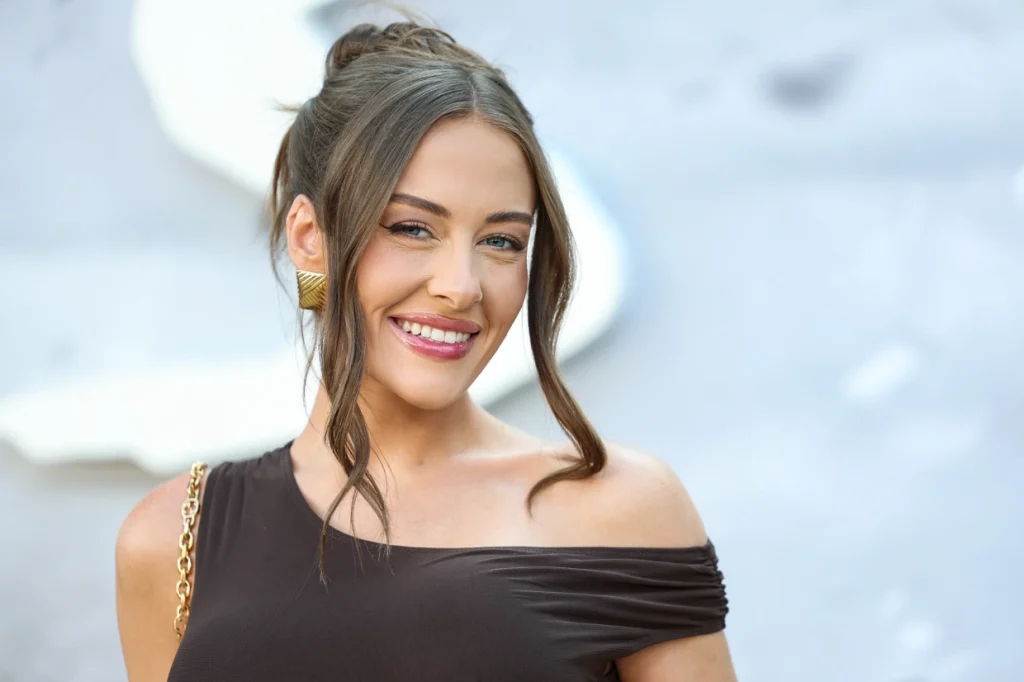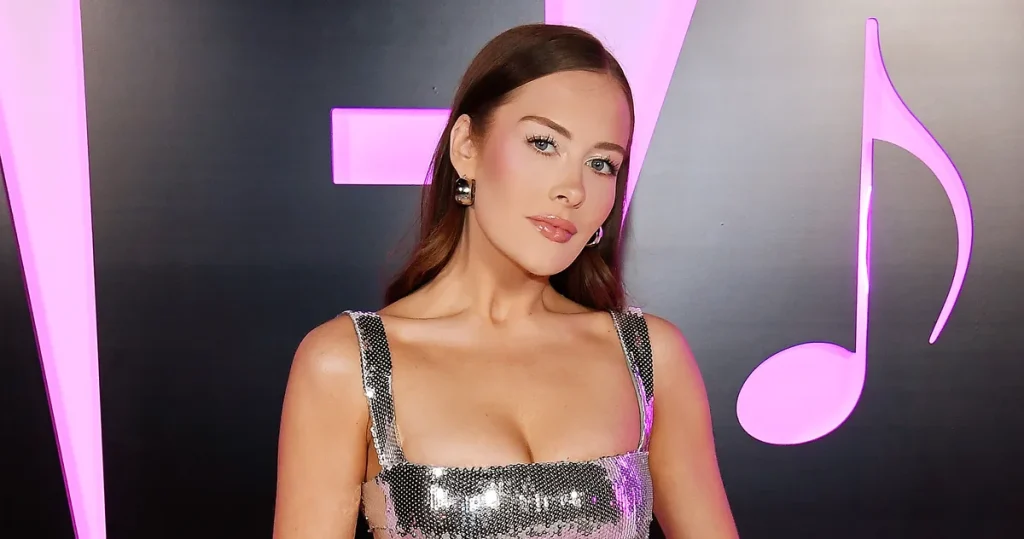The internet hasn’t stopped buzzing about Brooke Schofield tweets, and for good reason. What started as a few resurfaced posts quickly spiraled into one of the most talked-about influencer controversies of 2024. The tweets weren’t just immature jokes from her teenage years; they included racially offensive language, homophobic slurs, and disturbing takes on sensitive issues, including the Trayvon Martin case.
The reaction? Loud, fast, and widespread. Fans felt shocked and betrayed, and the fallout has left Brooke’s reputation hanging in the balance.
Who Is Brooke Schofield?

Brooke Schofield is a digital content creator and podcast co-host, best known for her role on Cancelled, the wildly popular show she runs with fellow influencer Tana Mongeau. Over the past few years, Brooke built a loyal following on TikTok, YouTube, and Instagram, thanks to her humor, raw honesty, and girl-next-door appeal.
She cultivated a brand that felt inclusive, relatable, and progressive someone unafraid to speak openly about mental health, relationships, and internet culture. That’s exactly why the Brooke Schofield tweets hit especially hard. The gap between who she appeared to be and the offensive language in those old posts left many fans feeling deeply confused, disappointed, and betrayed.
What Were the Brooke Schofield Tweets About?

In July 2024, several users on TikTok and X (formerly Twitter) began sharing screenshots of Brooke Schofield tweets from 2012 to 2016. The content wasn’t just juvenile or poorly worded; it was downright harmful.
The tweets included:
- Defense of George Zimmerman, the man acquitted in the shooting of unarmed Black teenager Trayvon Martin.
- Racially insensitive jokes, including the use of slurs.
- Homophobic and fatphobic language.
- Mocking remarks about mental illness and suicide.
The sheer volume of offensive tweets made it clear this wasn’t just one or two slip-ups. For someone who built her brand on being “woke” and socially aware, this was a stark and disturbing contrast. The posts suggested a mindset that directly contradicted the values she claimed to support.
How Did the Internet React?
Social media didn’t hold back. The backlash was immediate and intense. As soon as the Brooke Schofield tweets surfaced, platforms exploded with criticism, reactions, and calls for accountability. The public response quickly shifted from disappointment to outrage.
Platforms lit up:
- TikTok was flooded with reaction videos, some emotional, some furious, that quickly gained hundreds of thousands of views.
- Reddit threads documented and analyzed the tweets in detail, building timelines and dissecting her past behavior.
- Influencer news outlets like PopCrave picked up the story, and soon it was everywhere.
Many fans said they felt betrayed by someone they once looked up to. Some argued that Brooke was “old enough to know better,” noting that she wasn’t a child at the time of the tweets; she was a teenager with a developed sense of right and wrong.
The usual “she was young” excuse wasn’t landing well. People wanted accountability, not just damage control.
Response from Tana Mongeau and the Cancelled Podcast
As backlash intensified, fans turned their eyes to Brooke’s co-host and friend, Tana Mongeau. In the first Cancelled episode following the controversy, Brooke was notably absent.
Tana addressed the situation directly:
“The tweets were horrific. I’m still processing everything and figuring out what this means for the show.”
This statement left fans with more questions than answers. Was Brooke still part of the podcast? Would she be returning? The uncertainty only added to the speculation, and the silence from Brooke’s side didn’t help either.
Brooke Schofield’s Public Apology: Sincere or Strategic?
After several days of silence, Brooke released a short video acknowledging the tweets and apologizing.
“There’s no excuse for what I said. They were disgusting, and I’m sorry.”
She explained that she was raised in a politically conservative household by her grandparents, where certain views were normalized. While this offered context, many felt it came off as an excuse rather than true accountability.
In response to the backlash to her apology, Brooke followed up with a longer, more emotional statement days later:
“Nobody forced me to write those things. I did. It’s my fault, and I have to own it.”
She announced a donation to the Trayvon Martin Foundation and promised to continue educating herself on racism, homophobia, and mental health. Some people appreciated the follow-up and saw signs of genuine remorse. Others weren’t convinced, accusing her of doing just enough to protect her brand.
What Can We Learn from This?
Brooke Schofield’s tweets offer a powerful and painful lesson: nothing on the internet ever really disappears.
Even if something was posted years ago, even if you’ve changed since then, your past digital footprint can catch up to you, and it can hurt both your career and the people affected by your words.
Key lessons:
- Think before you post. What seems like a joke today might not age well tomorrow.
- If you’ve made mistakes, take responsibility before you’re exposed. Don’t wait to be called out.
- A real apology involves action — not just words.
Conclusion
This wasn’t just a scandal over old posts. The Brooke Schofield tweets sparked a larger conversation about digital accountability, personal growth, and the gap between performative and genuine progressivism.
Whether you accept her apology or not, the controversy highlights a harsh reality of internet culture: your words live forever. And how you choose to respond when they resurface says everything about who you are and who you’re becoming.
Brooke’s journey isn’t over, but this chapter will always serve as a cautionary tale for influencers and anyone with an online presence.
Frequently Asked Questions (FAQs)
Q1. Did Brooke Schofield really defend George Zimmerman?
Yes. One of her past tweets appeared to defend George Zimmerman, the man involved in the Trayvon Martin shooting. Brooke has since acknowledged the tweet and called it offensive and wrong.
Q2. Are the tweets still visible?
No. The tweets have been deleted, but screenshots are still widely available on Reddit, TikTok, and X.
Q3. Is Brooke still part of the Cancelled podcast?
At the time of writing, Brooke has been absent from at least one episode. However, no official statement has confirmed whether she has left the show permanently.
Q4. What actions has she taken since the controversy?
Brooke issued two public apologies, donated to the Trayvon Martin Foundation, and expressed her commitment to learning more about the issues her tweets touched on.

